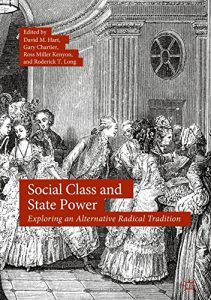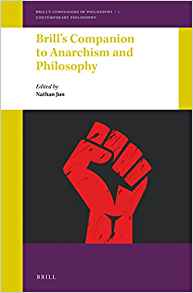[cross-posted at BHL]
Karl Marx once wrote:
I do not claim to have discovered either the existence of classes in modern society or the struggle between them. Long before me, bourgeois historians had described the historical development of this struggle between the classes, as had bourgeois economists their economic anatomy. My own contribution was
1. to show that the existence of classes is merely bound up with certain historical phases in the development of production;
2. that the class struggle necessarily leads to the dictatorship of the proletariat;
3. that this dictatorship itself constitutes no more than a transition to the abolition of all classes and to a classless society.
Marx is certainly right that class analysis was a central feature of classical liberalism long before he picked it up. He’s fibbing a bit, though, about (1) and (3); many of his bourgeois predecessors (for example, the Censeur triumvirate of Charles Comte, Charles Dunoyer, and Augustin Thierry) most emphatically thought that class society as they understood it was a temporary phenomenon destined to be displaced. Thierry, for example, announces:
Federations will replace states; the loose but indissoluble chains of interest will replace the despotism of men and of laws; the tendency towards government, the first passion of the human race, will cede to the free community. The era of empire is over, the era of association begins.
The main difference between Marx and the liberals was that Marx took the differentiation between ruling and ruled classes to be grounded in differential access to the means of production, whereas the liberals took the differentiation between ruling and ruled classes to be grounded in differential access to predatory power, and in particular to the power of the state. (To be sure, Marx acknowledged and indeed insisted on the important role of the state in maintaining class division when examining the details of history or current events; but the state quickly receded in importance when he turned to abstract theory.)
All this is by way of noting that I just received in the mail my author’s copy of Social Class and State Power: Exploring an Alternative Radical Tradition, an anthology of libertarian and classical liberal writings on class analysis that I co-edited with David Hart, Gary Chartier, and Ross Kenyon.
The volume includes material by a rather heterogeneous collection of authors:
- from the 17th century, Richard Overton;
- from the 18th century, Adam Smith, Thomas Paine, Vicesimus Knox, and William Godwin;
- from the 19th century, Jeremy Bentham, James Mill, Thomas Hodgskin, John Wade, William Leggett, Richard Cobden, John C. Calhoun, Adolphe Blanqui, Frédéric Bastiat, Charles Renouard, Augustin Thierry, Gustave de Molinari, Herbert Spencer, William Graham Sumner, Lysander Spooner, and Benjamin Tucker;
- and from the 20th century, Franz Oppenheimer, Albert J. Nock, Ludwig von Mises, Murray Rothbard, Roy Childs, Walter Grinder, John Hagel, Hans Hoppe, and your humble correspondent.
I would urge you to go out and buy a copy; but in light of the book’s $100 pricetag, I’ll just urge you to go out and suggest to your local research library that they buy a copy.


